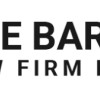Specializing in patent litigation, Chicago IP Law's attorneys provide over fifty years of experience in all aspects of intellectual property law matters. As seasoned trial lawyers admitted to the federal trial bar, we provide a significant advantage for our clients through a unique background allowing us to implement strategies to withstand the most rigorous challenges in court.
Licensed and/or eligible to practice before the United States Patent and Trademark Office and multiple U.S. states, including the District of Columbia, we provide efficient and effective patent litigation services by eliminating the need to hire additional attorneys to explain patent laws in court.
Whether providing advice in the development of a patentable idea, setting up the intellectual property structure of a business, maintaining current IP, navigating the most current patent rules and regulations, or asserting or defending patents in a federal court of law, Chicago IP Law has the experience and expertise to counsel and guide any business, large or small, through all these areas from beginning to end.
Licensed and/or eligible to practice before the United States Patent and Trademark Office and multiple U.S. states, including the District of Columbia, we provide efficient and effective patent litigation services by eliminating the need to hire additional attorneys to explain patent laws in court.
Whether providing advice in the development of a patentable idea, setting up the intellectual property structure of a business, maintaining current IP, navigating the most current patent rules and regulations, or asserting or defending patents in a federal court of law, Chicago IP Law has the experience and expertise to counsel and guide any business, large or small, through all these areas from beginning to end.
Services
Our litigators have in-depth knowledge of the patent process that can only be obtained by having an active practice writing detailed/technical patent applications.
We help our clients to consider all perspectives while developing their patent ideas/products.
In drafting patent applications, as both patent and trial attorneys, we identify the unique and novel aspects of our client's inventions to obtain the broadest coverage possible while providing the best opportunity for patent applications to be allowed and be effectively enforced.
We help our clients to consider all perspectives while developing their patent ideas/products.
In drafting patent applications, as both patent and trial attorneys, we identify the unique and novel aspects of our client's inventions to obtain the broadest coverage possible while providing the best opportunity for patent applications to be allowed and be effectively enforced.
As explained by the United States Patent and Trademark Office, a patent for an invention is the grant of a property right to the inventor, issued by the United States Patent and Trademark Office.
Generally, the term of a new patent is 20 years from the date on which the application for the patent was filed in the United States or, in special cases, from the date an earlier related application was filed, subject to the payment of maintenance fees.
U.S. patent grants are effective only within the United States, U.S. territories, and U.S. possessions.
Generally, the term of a new patent is 20 years from the date on which the application for the patent was filed in the United States or, in special cases, from the date an earlier related application was filed, subject to the payment of maintenance fees.
U.S. patent grants are effective only within the United States, U.S. territories, and U.S. possessions.
As litigators, we know that the vast majority of litigation results in some kind of settlement and typically involves extensive negotiation and drafting of a settlement agreement.
As such, we at Chicago IP Law have negotiated and drafted dozens and possibly hundreds of settlement agreements.
In the world of patent and trademark infringement, those settlement agreements often involve licenses.
We have successfully negotiated and drafted license agreements involving highly complex cross licenses involving multiple parties to fairly simple non-exclusive licenses.
As such, we at Chicago IP Law have negotiated and drafted dozens and possibly hundreds of settlement agreements.
In the world of patent and trademark infringement, those settlement agreements often involve licenses.
We have successfully negotiated and drafted license agreements involving highly complex cross licenses involving multiple parties to fairly simple non-exclusive licenses.
There are times when clients would prefer to keep their ideas, formulas and processes secret, as opposed to obtaining patent protection, which requires them to disclose their inventions and "secrets" to the public in exchange for a limited period of exclusivity in the market.
Trade secrets are fairly common for companies using formulas or processes that give them an advantage over competitors in their respective markets.
Most people think of Coca-Cola's secret formula for its Coke product as the ultimate trade secret.
Trade secrets are fairly common for companies using formulas or processes that give them an advantage over competitors in their respective markets.
Most people think of Coca-Cola's secret formula for its Coke product as the ultimate trade secret.
Trademarks are an integral part of any company's business that sells goods and/or services.
Frequently, a company's trademark or trademarks are the most valuable intellectual property asset that a company owns.
Unlike patents, trademarks belong to the owner for as long as the company continues to use the trademark in commerce.
Trademarks are used to identify the source of goods or services being provided to the consumers and consumers, are entitled to rely on the trademark associated with the goods or services when making their purchasing decision.
Frequently, a company's trademark or trademarks are the most valuable intellectual property asset that a company owns.
Unlike patents, trademarks belong to the owner for as long as the company continues to use the trademark in commerce.
Trademarks are used to identify the source of goods or services being provided to the consumers and consumers, are entitled to rely on the trademark associated with the goods or services when making their purchasing decision.
Reviews

Be the first to review Chicago IP Law.
Write a Review

